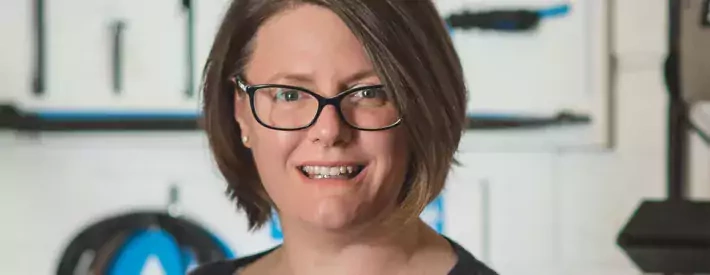Industrial revolution: Hayley Pells FIMI

In this article: We speak with Hayley Pells FIMI on the industry, MOT sector and how the industry is changing
The IMI has a diverse membership base, in the first of two parts, MotorPro speaks with Hayley Pells FIMI, director at Avia Sports Cars, and one of the institute’s newest members, to get her perspective on the industry, the IMI and how she thinks things will change in the future.
MotorPro: What made you chose a career in the motor industry and what route did you take?
At first, I fought a career in the industry joining the military instead. My father, after starting in the independent aftermarket went on to manufacture single seaters, my mother raced side car outfits. Motorsport dominated my childhood and as a teenager, I needed to do something for myself.
But I finally took up my father’s offer of a 50:50 partnership in a new venture, Avia Autos, a service and repair shop specialising in chassis tuning services.
I’ve racked up level 3 VRQs in light vehicle maintenance and repair, I am an MOT tester, MOT manager, completed a level 3 ILM in leadership and management, gained a Masters in Science and most recently become a Fellow with the IMI.
How has the industry changed since you've been in it?
The changes I have witnessed have mostly been in the technology landscape. As battery technology continues to revolutionise the development of tools and cars I am not tripping over so many airlines, I can carry a small hand held device into a vehicle and connect wirelessly to the car. I buy less bulky books full of data and the workshop has shades of motorsport in its display of polished steel counters and locked cabinets.
Motorist’s complaints of failed connectivity to cloud based services have replaced the welding rod bodge to pick up the local radio station and expectation of my knowledge and resources seem to climb in opposition with the prices that are prepared to be paid. Today’s motorist has the unhappy task of trying to balance the quality of work with what they can afford to pay, and I do not envy the choices they are forced to make, especially when wading through baffling language and battling the fear of being ripped off.
How can the industry improve?
I believe that regulation will become a reality soon. Continuous Professional Development will become necessary to keep with the fast pace of improvement to the vehicles and the tools available to maintain them. I am excited about this potential of increased professionalism within the industry and feel there is plenty more for me to learn. As the UK car parc gets busier I feel the motorist deserves the reassurance of a well regulated industry, all of the associated costs of car ownership make up a considerable amount of their outgoings, it seems only fair that their hard earned money being spent in the industry should be treated with respect.
The MOT sector is a crucial part of the industry and has been through a lot of changes recently, how have you managed those changes?
Having started from an administrative role I have implemented a system within the workshop that does not rely on centralised control. The absence of a hierarchy has led to a more productive workshop, we work smart and as a result spend fewer hours in the building, yet we have become more profitable.
This method was given an extreme test when I unexpectedly had to take 10 months off following my son’s cardiac arrest at 4 weeks old. I returned to a workshop that is a tribute to the hard work and intelligence of the people I am privileged to work with. The changes from the ministry are welcome at Avia, I would like to spend less MOT test time in boring administrative tasks and focus more on the test itself – I think this would ultimately be of more benefit to the motorist and it would certainly help my sanity.




